What Were Solomon's Gardens And Parks Like
Flower gardeners, delight! This garden is for you. Our weekly journey through the Lenten season in Prophet & Leaders Bible Garden Design brings us to this garden space brimming with botanical beauty. Named by the Savior himself, Solomon's Splendor celebrates the gardener-king's passion for plants. And he loved them all, from the towering, cool-forest cedar of Lebanon down to the low-growing, blazing-sun hyssop, including the flower fields Jesus gestured to while teaching about our Father's faithfulness.
click here to return to the first Bible Garden Design – Moses' Murmuring Vegetables
Solomon, King David's first descendant on the throne of ancient Israel, led with respect and reverence for the Lord, resulting in a reign of peace and prosperity in his country for 40 years. It was a complete landscape turnaround from the 40 years spent sprawled across the searing Sinai that the Israelites scarcely survived. Under Solomon, families were planted and well-established in the land, and everyone became a gardener! With their own vine and fig tree, that is.
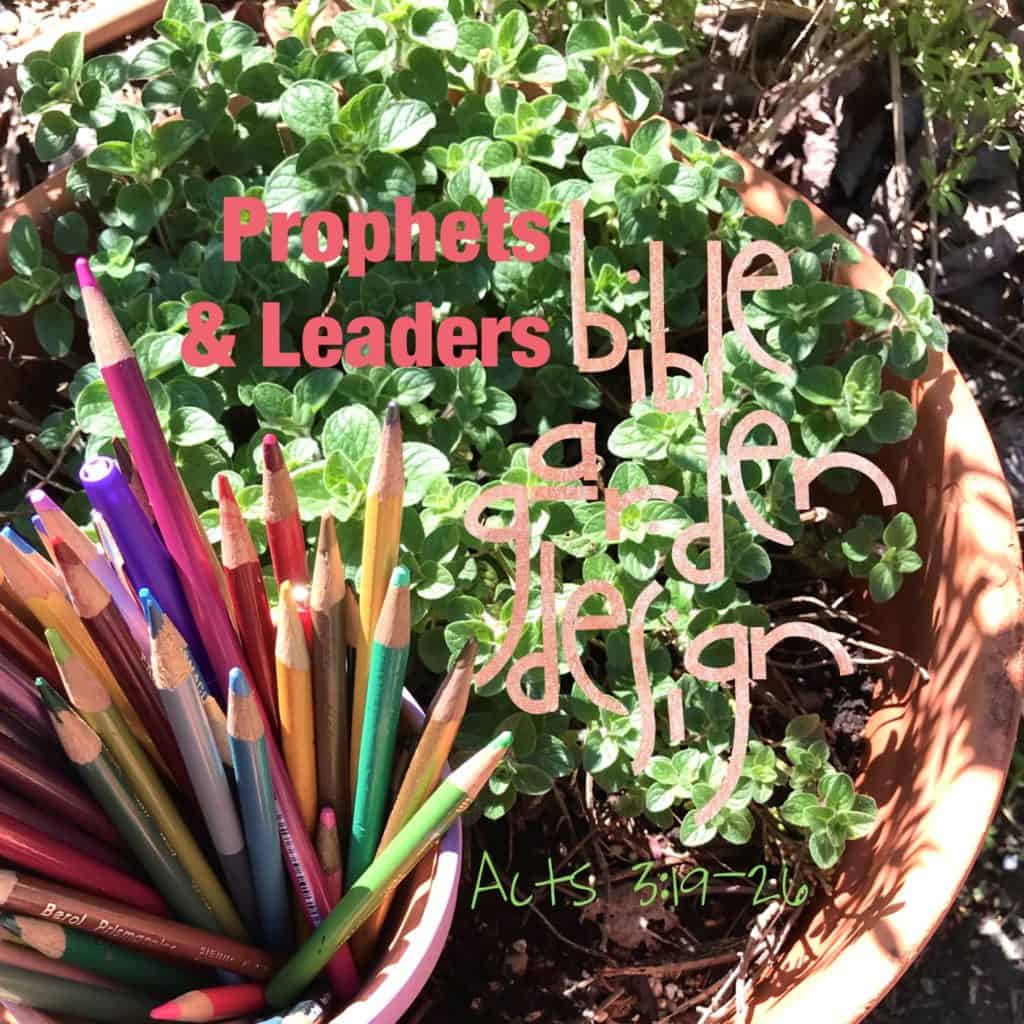
For your design of Solomon's Splendor, find a breezy glance and a deeper gaze, and take in whichever fits your timing:
Schematic Design Ideas will highlight key elements, complimented with a Deeper Dig into the background story if you have time for more reading.
Plant Palate will recommend plants to feature, with a Scripture Guide at the end if you would like to see the plants as they are written in verse.
Landscape Views will offer glimpses of gardens and landscapes as possible examples
Words for Lent will offer further insight for the Lenten season into the relationship of the featured prophet or leader with repentance, his Reflections of the Messiah, and the Time of Restoration spoken of by the holy prophets, guided by Acts 3:19-26.
Solomon's Splendor
Let this garden space reflect King Solomon's productive prosperity in qualities of refreshment, tranquility, joy, and enduring love, filled with conifers, flowers, herbs, spices, fruiting trees—his plant lists go on and on. Solomon's name means peace, from the Hebrew word shalom, alluding to the kind of blessed, satisfied, as-it-should-be, sweet completeness planted in the first garden, the delight that was Eden. No coincidence he was the first writer to return to the topic of the tree of life since Adam and Eve were banished from that first garden.
Schematic Design Ideas
Welcome garden visitors with the splendor of wildflowers spread among soft, gentle grasses, the casual scenery that seems to have caught the Savior's eye as he walked along the road and taught his followers in Luke 12:27-28. Creating flower meadows may not require the flowers to labor, as Jesus said, but it is not a nonchalant endeavor for the gardener! It involves as much diligent tending as any garden space, despite the natural, easy-going appearance…just the sort of mindful, enterprising construction work that characterized Solomon's rule encouraged by 1 Chronicles 28:10.
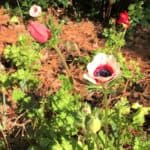
Craft this bucolic view, nevertheless, with the sort of pleasantry that waves all worry aside as Jesus commanded; give it a countryside feel that might encourage visitors to spread a blanket and plop down for a picnic, like He and She in Song of Songs 7:10-12. Wildflowers bloom vivid red in the holy land in springtime, a succession of crown anemones, tulips, Adonis, and poppies. It may be necessary to scatter "Not Bible Plant" seeds for continuing summer and fall blooms, such as orangey-red zinnias, coneflower, and celosia, to carry the brilliant color through North American seasons.
Compliment the field colors with a grove of pomegranate trees alongside; their bright, poppy red, bell-shaped flowers and showy red fruits that follow will magnify the attraction of the garden space. They must have been the king's favorites, as they were mentioned as adorning his palace home and gardens. The trees could be planted pillar-style, to mimic the palatial columns of 1 Kings 7/2 Chronicles 3.
Alternately or additionally, incorporate pomegranates and grapevine borders into a mixed orchard of "every kind of fruit tree" which Solomon planted in Ecclesiastes 2:5. This would provide the opportunity to break up the monoculture of a single species, a practice growing in popularity in today's fruit production. See the Plant Palate for the fruits Solomon mentioned by name, but there may also be artistic license in the word "every," should your garden have a colder zone hardiness than the king's.
The "seven species" well-known in the Jewish faith are all found in the garden descriptions of Song of Songs— vines, fig trees, pomegranates, olive, and date palm [honey], a plant list noted in Deuteronomy 8:8. A poignant showcase of these particular trees would be well-suited to this garden.
A garden wall can provide a backdrop or architectural feature, help delineate changes in elevation, offer interesting material texture and pattern, and define different "rooms" or spaces. Imagery for a garden wall comes from several Words: hyssop growing out of a wall in 1 Kings 4:33; a garden enclosed or locked up or walled garden (various translations) in Song of Songs 4:12; and from Solomon's charge of palace and temple construction in 1 Kings/2 Chronicles, of which a foundation wall is all that remains today, the Wailing Wall in Jerusalem. The possibilities are endless here!
Likewise, fountains are a frequent metaphor in Solomon's writing, picturing the benefits of wisdom in Proverbs 13:14 and the refreshment of vibrant love in Song of Songs 4:12 . A fountain might become a focal point, or spouts of water might pour out of the wall design, alternating with planted pockets of hyssop, caper, or maidenhair fern, all with cascading branches and suitable to various light exposures.
Yes, Solomon provides a rich palate of design elements…and we have not yet touched on the spices or conifers (hint: coming next week)! Not to mention play-on-words plants (plants with Biblical names though not native to the holy land) like rose of Sharon, lily-of-the-valley…and surely this garden space ought to have more thyme, a pun-full interpretation of Ecclesiastes 3:1-10.
Finally, astute garden visitors will discern by now they have brushed with the idyllic themes of the Garden of Eden in the cover and tasty-goodness of fruiting trees, the refreshing water fountains, the walled protection, and the outright beauty of it all. They will anticipate a symbolic Tree of Life, whether a sculptural artispiece or actual tree. Solomon was the only Old Testament writer to venture back to the subject; then again, he was Israel's only other gardener-king in the Bible besides Christ.
Plant Palate
links provided will take you to cultural information in the Plant Guide
Vines: grapevines
Grains: wheat, barley
Fruit Trees: fig, sycamore fig, pomegranate, olive, date palm, apple or apricot, almond, "every kind of fruit tree"
Flowers: lilies, henna, crown anemones, tulips, Adonis, poppies,
Herbs: hyssop
Spices: saffron crocus, caper, camphire, spikenard, calamus, cinnamon, cassia, frankincense, myrrh
Shrubs: maidenhair fern
Conifers: cedar of Lebanon, juniper, cypress, fir
Play-on-Words Plants: rose of Sharon, lily-of-the-valley, thyme
Mystical Plants: Tree of Life
Landscape Views
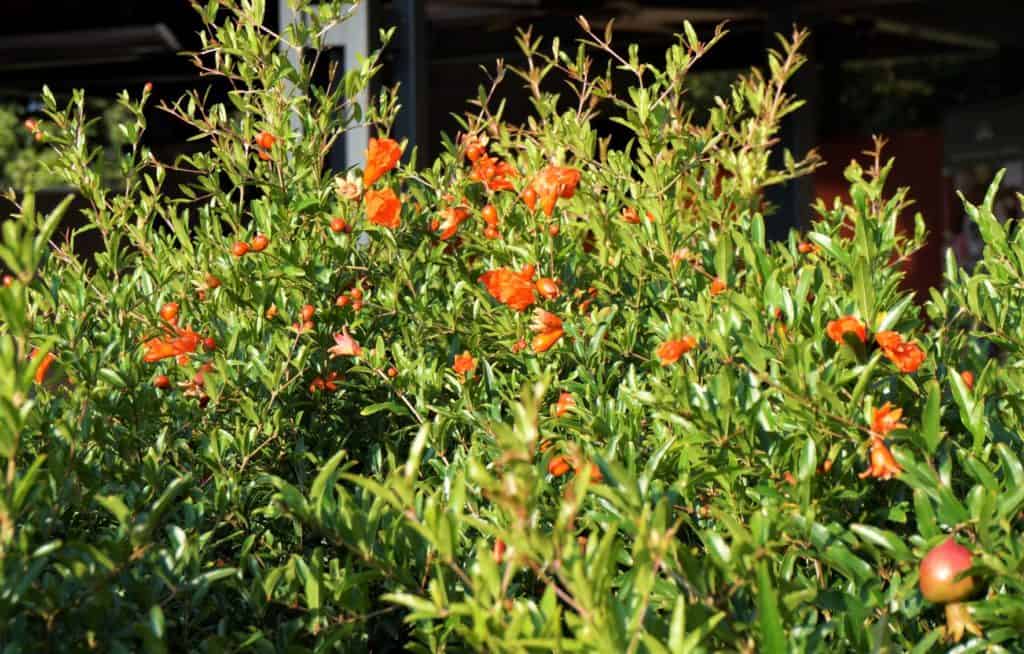

Deeper Dig into Solomon's Leadership
Solomon's story may be simpler to grasp than the magnificence of his garden plans! He was son of Israel's most endeared leader, King David. He succeeded his father on the throne, and was chosen by God to carry out the epic building plans that would establish God's power and might in the land, a heart's desire of David's.
Solomon was humble enough to realize the job before him was too big for him. He was a young leader who needed discernment and help in governing people, and he asked God for exactly that. God answered by giving Solomon discernment, wisdom, knowledge, understanding, insight….all that he asked for and all that he didn't…ridiculous wealth to go with it.
He lived his whole life in Jerusalem—I'm not sure he even ventured to Lebanon for a forest bath! After all, it took decades to build the temple and palace, and he continued administering building projects in surrounding cities after that, not to mention prosperous trade deals including lavish spice caravans. He did get away to En Gedi, of course, and left us his juicy adventurer's journal of the jaunts in Song of Songs.
While Solomon's wealth was staggering, his wisdom renowned, and his writings treasured then as now; while the garden spaces were decadent and the romantic love of his wives was reflected in the landscape, we do not read the intimate discussions and crisis-reliance that forged the relationships between Moses and God, between Samuel and God.
Solomon knew much more about God than most, but he did not seem to draw close to Him, heart to heart. He served, but he did not entertain the Lord's presence. He witnessed God's glory fill the temple when it was finished, but I speculate that he did not continue cultivating encounters with the Almighty. Who had time with all that work?
Thus Solomon eventually drifted from God's commands, swayed by the influences of his unbelieving wives. For this sin, God dismantled the kingdom following his death, leaving only a sliver for David's descendants to reign in succeeding generations. The splendor would not save.
Read the full tale of Solomon's life in 1 Kings 2-11, 1 Chronicles 28-29, 2 Chronicles 1-9, Proverbs, Ecclesiastes, and Song of Songs
Scripture Guide
a quick reference of verses mentioning plant material:
Who of you by worrying can add a single hour to your life? Since you cannot do this very little thing, why do you worry about the rest? "Consider how the wild flowers grow. They do not labor or spin. Yet I tell you, not even Solomon in all his splendor was dressed like one of these. If that is how God clothes the grass of the field, which is here today, and tomorrow is thrown into the fire, how much more will he clothe you—you of little faith!
Luke 12:25-28 NIV
So Solomon sat on the throne of his father David, and his rule was firmly established.
1 Kings 2:12 NIV
The people of Judah and Israel were as numerous as the sand on the seashore; they ate, they drank and they were happy…For he ruled over all the kingdoms west of the Euphrates River, from Tiphsah to Gaza, and had peace on all sides. During Solomon's lifetime Judah and Israel, from Dan to Beersheba, lived in safety, everyone under their own vine and under their own fig tree.
1 Kings 4:20, 24-25 NIV
He could speak with authority about all kinds of plants, from the great cedar of Lebanon to the tiny hyssop that grows from cracks in a wall.
1 Kings 4:33 NLT
When Hiram heard Solomon's message, he was greatly pleased and said, "Praise be to the Lord today, for he has given David a wise son to rule over this great nation." So Hiram sent word to Solomon: "I have received the message you sent me and will do all you want in providing the cedar and juniper logs.
1 Kings 5:7-8 NIV [see also 2 Chronicles 2:11-15]
The two doors also were of olive tree; and he carved upon them carvings of cherubims and palm trees and open flowers, and overlaid them with gold, and spread gold upon the cherubims, and upon the palm trees.
1 Kings 6:32 KJV [see also 2 Chronicles 3:5]
Each capital was dressed with an elaborate filigree of seven braided chains and a double row of two hundred pomegranates, setting the pillars off magnificently…The capitals were in the shape of lilies.
1 Kings 7:18 The Message [see also 2 Chronicles 3:16]
[Solomon's Splendor] …All King Solomon's goblets were gold, and all the household articles in the Palace of the Forest of Lebanon were pure gold… King Solomon was greater in riches and wisdom than all the other kings of the earth.
1 Kings 10:21, 23 NIV [see also 2 Chronicles 9:13-22]
[And you, my son Solomon] Consider now, for the Lord has chosen you to build a house as the sanctuary. Be strong and do the work.
1 Chronicles 28:10 NIV
May your fountain be blessed, and may you rejoice in the wife of your youth.
Proverbs 5:18 NIV
Hope deferred makes the heart sick, but a longing fulfilled is a tree of life.
Proverbs 13:12 NIV
The teaching of the wise is a fountain of life, turning a person from the snares of death.
Proverbs 13:14 NIV
Like apples of gold in settings of silver is a ruling rightly given.
Proverbs 25:11 NIV
I increased my achievements. I built houses and planted vineyards for myself. I made gardens and parks for myself and planted every kind of fruit tree in them. I constructed reservoirs of water for myself from which to irrigate a grove of flourishing trees.
Ecclesiastes 2:4-6 HCSB
It's a land of wheat and barley, of vines and fig trees and pomegranates, a land of oil-rich olive trees and date honey.
Deuteronomy 8:8 VOICE
There is an occasion for everything, and a time for every activity under heaven: a time to give birth and a time to die; a time to plant and a time to uproot…
Ecclesiastes 3:1-2 HCSB
Remember him before you become fearful of falling and worry about danger in the streets; before your hair turns white like an almond tree in bloom, and you drag along without energy like a dying grasshopper, and the caperberry no longer inspires sexual desire. Remember him before you near the grave, your everlasting home, when the mourners will weep at your funeral.
Ecclesiastes 12:5 NLT
She …My beloved is to me a cluster of henna blossoms from the vineyards of En Gedi.
He How beautiful you are, my darling! Oh, how beautiful! Your eyes are doves.
She How handsome you are, my beloved! Oh, how charming! And our bed is verdant.
He The beams of our house are cedars; our rafters are firs.
She I am a rose of Sharon, a lily of the valleys
Song of Songs 1:14-2:1 NIV
Oh! Give me something refreshing to eat—and quickly! Apricots, raisins—anything. I'm about to faint with love…
Song of Songs 2:5 The Message
Flowers appear on the earth; the season of singing has come, the cooing of doves is heard in our land.
Song of Songs 2:12 NIV
My sweetheart, my bride, is a secret garden, a walled garden, a private spring
Song of Songs 4:12 GNT
Thy plants are an orchard of pomegranates, with pleasant fruits; camphire, with spikenard, spikenard and saffron; calamus and cinnamon, with all trees of frankincense; myrrh and aloes, with all the chief spices.
Song of Songs 4:13-14 KJV
I belong to my beloved, and his desire is for me. Come, my beloved, let us go to the countryside, let us spend the night in the [henna bushes]. Let us go early to the vineyards to see if the vines have budded, if their blossoms have opened, and if the pomegranates are in bloom—there I will give you my love.
Song of Songs 7:10-12 NIV
Words for Lent
Repent, then, and turn to God, so that your sins may be wiped out, that times of refreshing may come from the Lord…Acts 3:19 NIV
Solomon understood the reality of our human hearts and described it bluntly:
Indeed, there is no one on earth
who is righteous,
no one who does what is right
and never sins.
Ecclesiastes 7:20 NIV
He led his people in the way of repentance by his majestic prayer dedicating the gleaming new temple. He asked the Lord for forgiveness on behalf of his people:
…and if they have a change of heart in the land where they are held captive, and repent and plead with you in the land of their captivity and say, 'We have sinned, we have done wrong and acted wickedly'; and if they turn back to you with all their heart and soul… then from heaven, your dwelling place, hear their prayer and their pleas, and uphold their cause. And forgive your people, who have sinned against you.
2 Chronicles 6:37-38, 39 NIV
Solomon's Reflections on the Messiah
…that he may send the Messiah, who has been appointed for you—even Jesus. Acts 3:20 NIV
Solomon offered one of my most favorite glimpses of our Savior in this telling revelation:
He has made everything beautiful in its time
Ecclesiastes 3:11 NIV
This statement contains no specifics, yet comes at the end of the "a time for everything" passage—a list of all the scenarios we struggle through in our human lives. He stopped them all in the promise of One who works the matters through to stunning completion, in as-it-ought-to-be beauty.
Solomon's Reflections of the Time of Restoration
…Heaven must receive him until the time comes for God to restore everything, as he promised long ago through his holy prophets. Acts 3:21 NIV
Again, without prophetic words, but with a word-picture of completeness, Solomon gives us insight to the coming restoration in his magnificent feasting moment entertaining the Queen of Sheba. Before she comes, the temple was finished, making all the more sweet the eventual words of Jesus, "It is finished."
All Solomon's work was carried out,
from the day the foundation
of the temple of the Lord
was laid until its completion.
So the temple of the Lord was finished.
2 Chronicles 8:16 NIV
Following the work completed, there was a feast…make no mistake, this is foreshadow for us!!
Notice Sheba was not merely satisfied by a delicious meal, but enthralled with the way the whole occasion came together, its perfected choreography. Knowing he led his servants by speaking wisdom over their everyday work…witnessing its effect on their interaction and interrelationships—their work in the table decorations, the seating chart, and, of course, true to Solomon's splendor, the way they were dressed!—the complete package, the total production, every detail precisely in place…the entirety of the scene left her breathless.
When the queen of Sheba observed Solomon's wisdom, the palace he had built, the food at his table, his servants' residence, his attendants' service and their attire, his cupbearers and their attire, and the burnt offerings he offered at the Lord's temple, it took her breath away.
2 Chronicles 9:3-4 HCSB
Prayer: O Lord, in this Lenten journey, I have a ways to go, much to consider in my ways as they align—or don't—with yours. But WOW! Thank you for these gorgeous glimpses from a gardener-king of the beauty you have in store for me because you have saved me for this. May I allow the dazzle of the feast you have prepared to infuse my daily life with peace, knowing the time is coming when all is set right, and it will leave me breathless with delight!
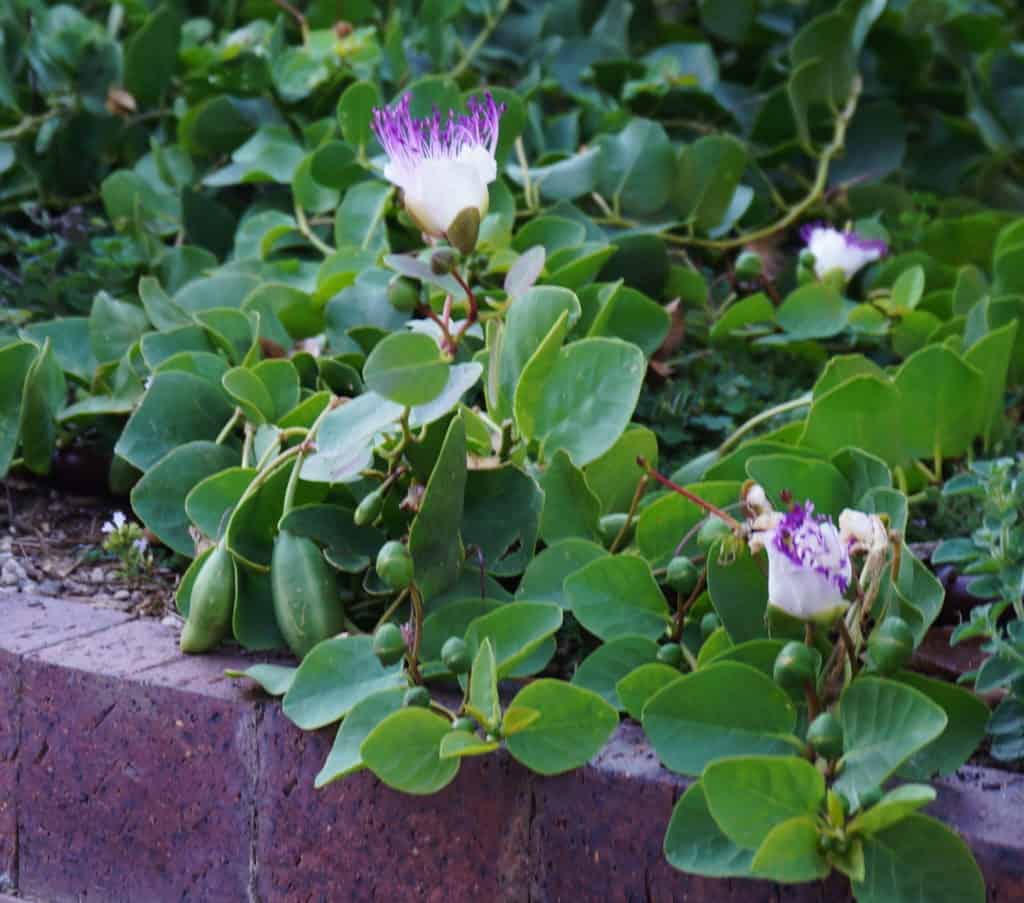
Further Study:
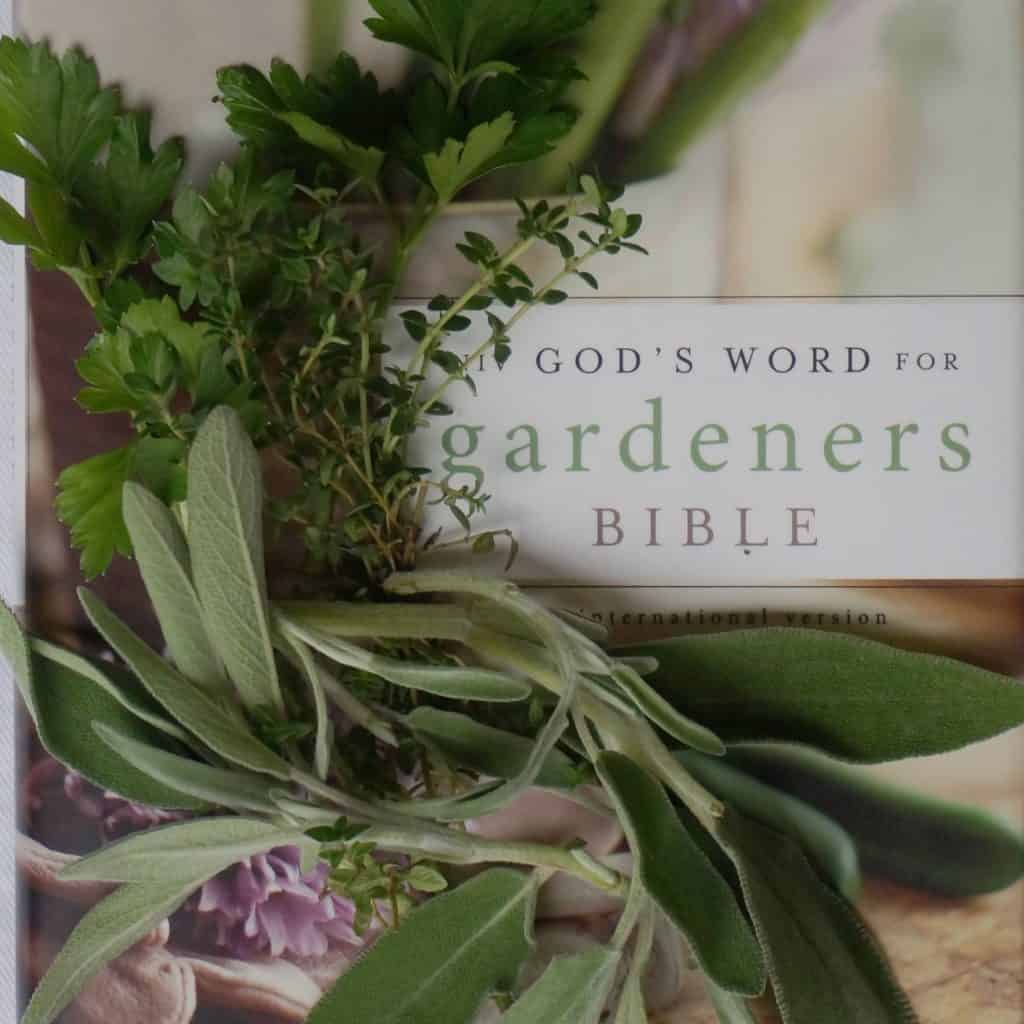
Dig into more devotions in the Garden Tour section of God's Word for Gardeners Bible on En Gedi, beginning on page a-16, and Palace Gardens on page a-17
Find related content in devotions on Pruning, featuring apple and apricot trees on page a-28; Growing, featuring caper on page a-33; and Bearing Fruit, featuring pomegranate on page a-34
See the Plant Index for a complete list of all the mentions of plants in God's Word for Gardeners Bible, www.gardenindelight.com/plant-index-gods-word-for-gardeners/
Find a Biblical plant bibliography in Plant Resources, www.gardenindelight.com/plant-resources/
Photo Credits & sketches
©2018-20 Shelley S. Cramm
What Were Solomon's Gardens And Parks Like
Source: https://www.gardenindelight.com/solomons-splendor/
Posted by: castillejaevembee1956.blogspot.com

0 Response to "What Were Solomon's Gardens And Parks Like"
Post a Comment